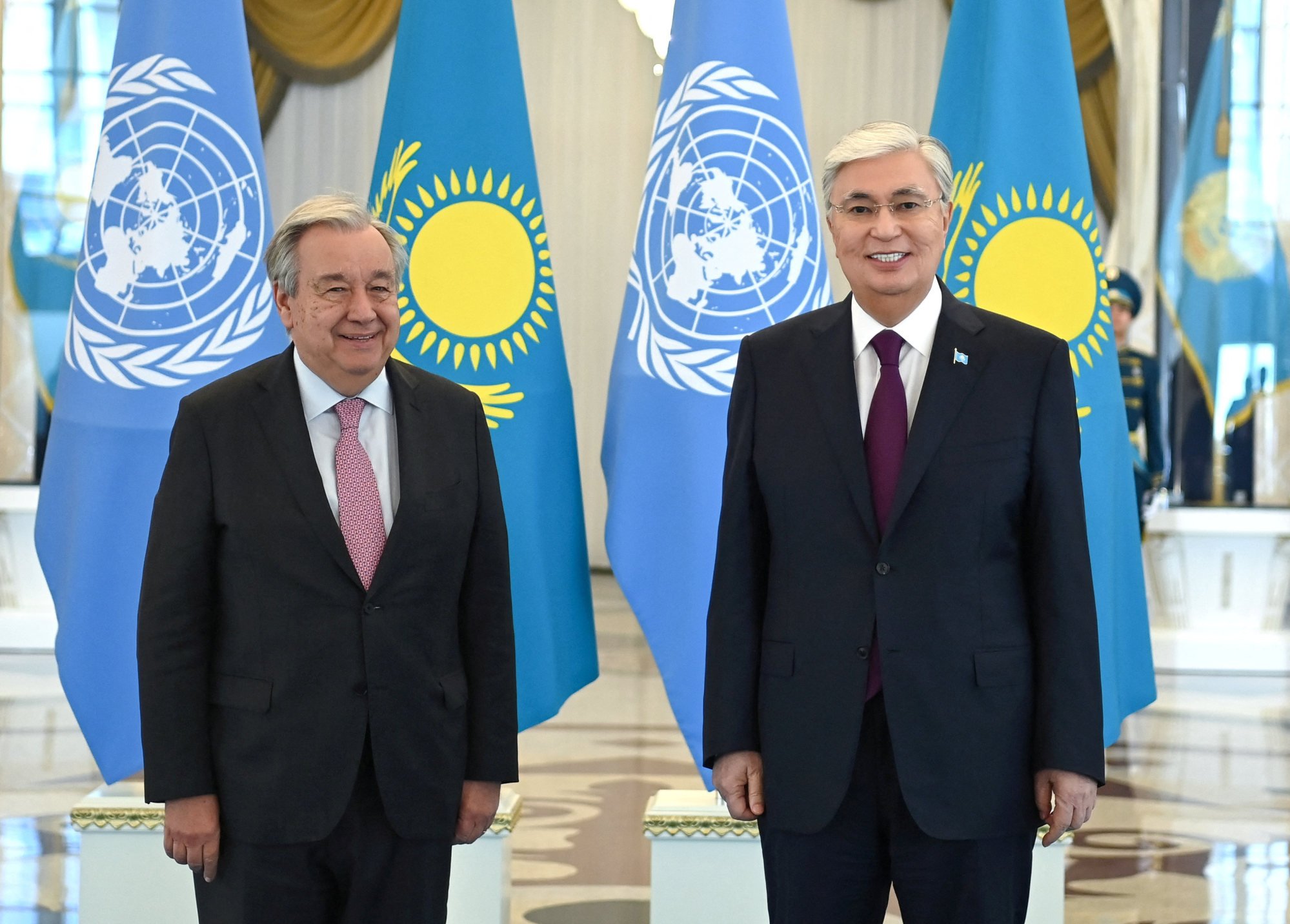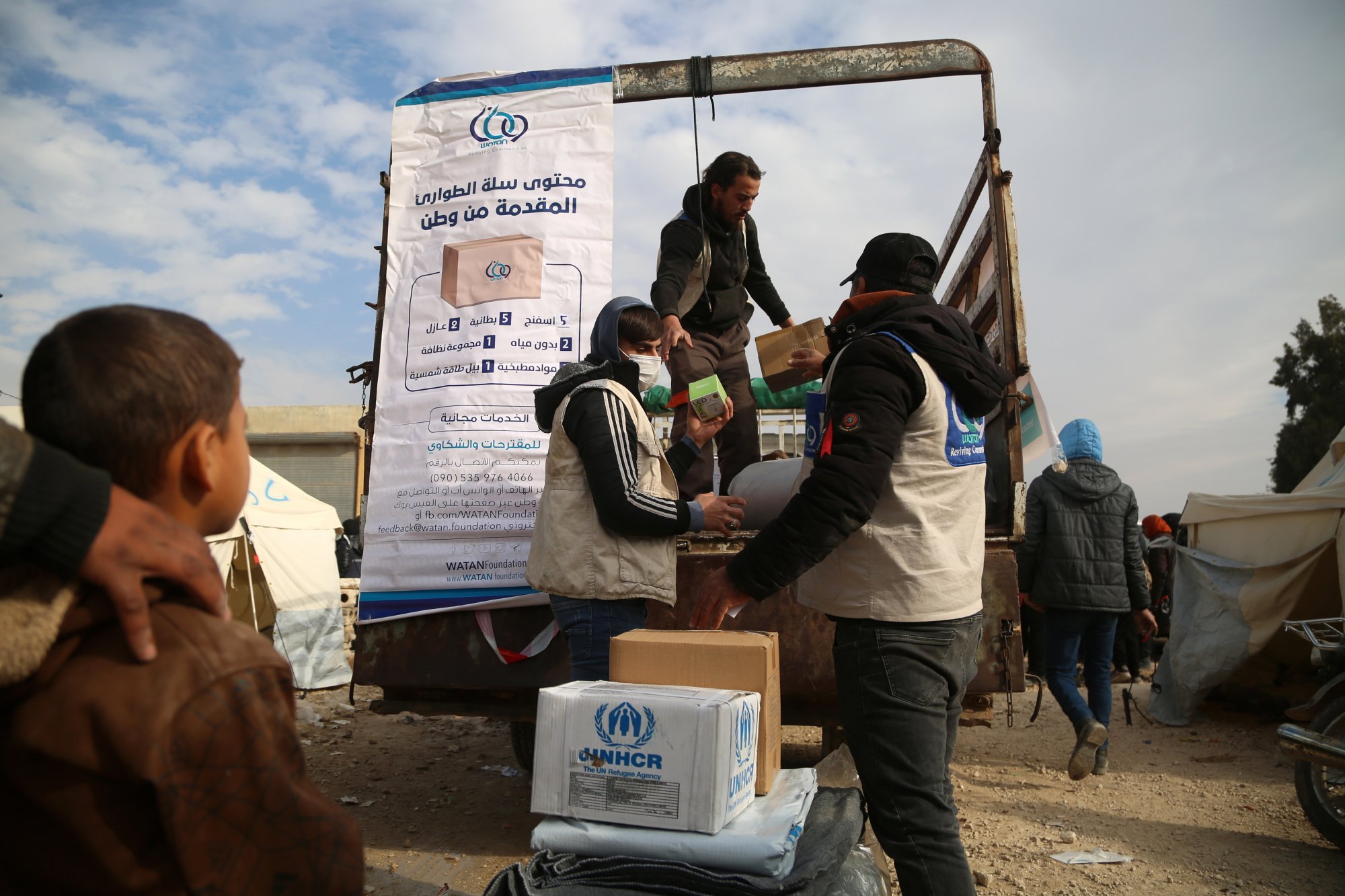Emerging donors from developing nations with sizable economic growth should assume a more significant role. Kazakhstan is doing so in Central Asia
.
Their foreign aid donations, reallocating funds to address domestic problems, has led to reduced financial support for international development projects.
Fighting against starvation. This comes as the 2024 relief aid appeal is not even near full funding and concerns arise due to potential cuts from Western countries, including the United States, which is the primary donor.
Our new platform offering a selection of content with explanatory sections, frequently asked questions, detailed analyses, and visual aids, presented through the efforts of our skilled team, who have received numerous awards.
The current global environment underscores the significance of fostering diverse and inclusive collaborative relationships across nations.
More than 60 percent of the world’s economic growth originates from developing countries, placing them in a position to play a key role in shaping a development program that accurately represents the needs and goals of low-income and emerging economies. Their endeavours can offer additional resources, new viewpoints, and context-based solutions to enhance the effectiveness and inclusiveness of official development aid.
One of the most effective models of contemporary development cooperation is the triangular partnership model. This approach encourages cooperation amongst traditional and emerging national development agencies, international organisations – particularly those within the UN system – and international financial institutions.
These partnerships are based on agreements reached at key UN conferences, such as the 1978 Buenos Aires Plan of Action, which established a framework for promoting technical cooperation among developing countries and the 2009 Nairobi Outcome Document, which emphasized the significance of South-South cooperation in achieving development objectives.
These initiatives facilitate targeted South-South and trilateral cooperation. In today’s interconnected world, such partnerships are essential for converting global commitments into tangible progress.
It has assumed the role of a provider of official development assistance (ODA) concentrated in Central Asia and Afghanistan. This strategic commitment aims to support regional development while advancing Kazakhstan’s diplomatic objectives, including global cooperation and development in the region.
ODA initiatives focus on key areas such as promoting economic growth, advancing social progress, ensuring environmental sustainability, and enhancing regional security. Central Asia’s critical position as a major trade and transit route linking Asia and Europe underscores the significance of its stability and development for countries like China, the European Union, and those benefiting from trade between the two continents.
By supporting local development, Kazakhstan not only reinforces its surrounding community but also fosters more efficient trade exchange, promoting global economic interconnectedness.
In Central Asia, ODA programmes are mainly carried out through three-party partnerships consisting of traditional donor countries, multilateral organisations, and local regional partners. This partnership structure also draws investments from industrialised nations, which finance projects focused on technology transfer and industrial modernisation.
The Conference on Interaction and Confidence Building Measures in Asia and the C5+1 US-Central Asia diplomatic platform enhance regional cooperation and support development collaborations.
The UN regional hub will function as a platform to coordinate sustainable development activities across Central Asia and Afghanistan, facilitating the exchange of knowledge, policy development, and the implementation of projects related to the UN’s sustainable development goals.

Moreover, Kazakhstan participates in the Global Partnership for Effective Development Cooperation, placing it among significant emerging donors, including Brazil, China, India, Malaysia, the United Arab Emirates, Saudi Arabia, Thailand, and South Africa, thereby expanding its regional and inter-regional development initiatives.
Organizations such as the Astana Civil Service Hub and the Kazakhstan Agency of International Development (KazAID) assist in promoting innovative partnerships on the principles of South-South and triangular cooperation. KazAID, launched in 2020, is Kazakhstan’s organization for international development cooperation, working under the Ministry of Foreign Affairs. Its goal is to promote sustainable development through technical support, capacity building, and other forms of assistance, mainly focusing on countries in Central Asia.
In 2023, Kazakhstan allocated US$5 million in humanitarian aid to several countries, including Afghanistan, Tajikistan, Turkey, Egypt and Syria. More than half of that amount went to Afghanistan, mainly in the form of food supplies.
In 2022, Kazakhstan allocated 23.4 million US dollars for relief aid intended for Afghanistan, the Kyrgyz Republic, Pakistan, and Tajikistan. Through targeted Official Development Assistance (ODA), Kazakhstan aims to support regional development, stability, and environmental sustainability in Central Asia.

As developed countries reduce their aid commitments due to budget limitations, developing and emerging countries are now being called upon to play a more significant role in supporting the global development system. In Central Asia, Kazakhstan is responding to this challenge through its national aid agency, KazAID. Our targeted assistance aims to bolster regional stability, with the goal of strengthening trade and cooperation between Asia and Europe.
Looking forward, other emerging economies must assume comparable roles within their respective regions to bridge the widening development gap. By adopting a collaborative and regionally adapted approach, emerging nations can enhance the global development structure, promoting joint prosperity and stability in an interconnected world.
More Articles from SCMP
Driver’s actions ahead of fatal scooter accident in Hong Kong ignites online discussion
China conducts groundbreaking surgery via satellite, marking a world first in ultra-remote medical procedures.
A Hong Kong driver accidentally crashed into a Japanese noodle shop in Japan after mistakenly pressing the accelerator pedal instead of the brake.
Four Hong Kong cyclists detained for ‘dangerous cycling’ following minibus clash
This article was first published on the South China Morning Post (www.scmp.com), the leading news source covering China and Asia’s regional news.
All rights reserved. South China Morning Post ISBN and product design, consulted on concepts, book design by Betty Chin.





